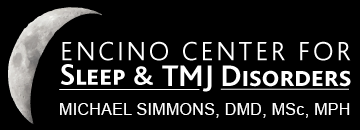
Sleep Apnea & Heart Health
Linking Sleep Apnea, Heart Disease, and Stroke
While snoring can be annoying, it’s not detrimental to a person’s health. However, if the snorer’s breathing continuously stops for brief periods during the night, it can lead to cardiovascular problems.
Sleep apnea is a disorder where the person’s breath pauses multiple times per hour of sleep. These episodes wake the person, leaving them gasping for air. The condition can reduce blood oxygen levels and is associated with high blood pressure, arrhythmia (fluttering heartbeat), stroke, and heart failure.
In the United States, heart failure is the leading cause of death — with stroke following closely behind on that list. If you suffer from high blood pressure, you’re at serious risk for both.
Poor Sleep Damages the Heart
According to researchers from Harvard Health Publishing, patients with untreated sleep apnea increase the likelihood of dying from heart disease by up to five times.
OSA (obstructive sleep apnea) is the most common form of sleep apnea and occurs when the upper airway collapses, restricting airflow to the lungs during sleep. When this happens, your body releases a stress hormone called epinephrine (also known as adrenaline) — after multiple episodes, these hormones can cause your blood pressure to rise and contribute to other heart problems.
Obesity or being overweight is a risk factor for OSA because it can cause an excess of tissue in the throat. The more tissue, the better chance the throat will collapse, and a sleep apnea episode will occur. Fortunately, Dr. Simmons offers multiple treatments to help control your sleep apnea.

Available Treatments
When you visit the Encino Center for Sleep & TMJ Disorders, Dr. Simmons can help solve any issue that you have. He’s uniquely qualified to help you find the correct diagnosis and effective treatment that you deserve.
Before formal treatment, you can decrease the risk of developing sleep apnea and heart problems by exercising. Over 45% of obese Americans also have sleep apnea, and as we mentioned before, all of these conditions are connected — gaining control of your weight can make a significant impact on your quality of sleep and heart health.
Dr. Simmons offers multiple forms of treatment to help you avoid sleep apnea episodes at night, and thus avoid high blood pressure and heart disease. The most common treatment is a machine that pumps air down your airway so that it doesn’t collapse — this is called a CPAP (continuous positive airflow pressure).
Many of our patients struggle using their CPAP because it can be restrictive and loud. In this case, we might recommend an oral appliance. Dr. Simmons will customize a device that looks like a sports mouthguard, but instead of protecting your smile from trauma, it’s designed to shift your jaw forward, allowing air to travel freely. No matter which treatment you choose, you can improve heart function and lower the risk of cardiovascular complications by treating your OSA.
